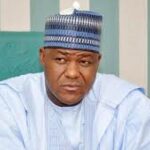The Senate and the House of Representatives have passed amendments to the 2022 Appropriation Act raising the subsidy on Premium Motor Spirit (petrol) by N442.72bn, from N3.557tn to N4tn.
The two chambers of the National Assembly respectively, considered and adopted reports on the amendment bills at the plenary on Thursday following a request by President Muhammadu Buhari.
- Petrol subsidy retained for political reasons – Experts
- Subsidy: Buhari transmits N2.557trn supplementary budget to National Assembly
They also approved a new oil price benchmark of $73 per barrel, a new oil production volume of 1.600 million per day, and a PMS subsidy of N4tn.
Provision for federally-funded upstream projects being implemented was cut by N200bn from N352.80bn, while the projection for Federal Government independent revenue was raised by N400bn.
Also passed was an additional provision of N182.45bn to cater for the needs of the Nigeria Police Force as well as provision of N76.13bn for domestic debt service, with net reductions in statutory transfers by N66.07bn.
The statutory transfers’ adjustments were as follows: NDDC by N13.46bn, from N102.78bn to N89.32bn; NEDC by N6.30bn, from N48.08bn to N41.78bn; UBEC by N23.16bn, from N112.29bn to N89.13bn; Basic Health Care Fund by N11.58bn, from N56.14bn to N44.56bn; and NASENI by N11.58bn, from N56.14bn to N44.56bn.
The President had written to the National Assembly to call for amendments to the budget and the fiscal framework for 2022 in order to accommodate the subsidy regime.
Buhari said the adjustments to the 2022 Fiscal Framework include an increase in the projected oil price benchmark by $11 per barrel, from $62 per barrel to $73 per barrel; a reduction in the projected oil production volume by 283,000 barrels per day, from 1.883 million barrels per day to 1.600 million barrels per day; an increase in the estimated provision for PMS subsidy for 2022 by N442.72bn, from N3.557tn to N4tn.
Other adjustments include a cut in the provision for federally funded upstream projects being implemented by N200bn from N352.80bn to N152.80bn; an increase in the projection for Federal Government independent revenue by N400bn; and an additional provision of N182.45bn to cater for the needs of the Nigeria Police Force.
The letter partly read, “Based on the above adjustments, the Federation Account (Main Pool) revenue for the three tiers of government is projected to decline by N2.418trillion, while FGN‘s share from the Account (net of transfer to the Federal Capital Territory and other statutory deductions) is projected to reduce by N1.173 trillion.
“However, the amount available to fund the FGN Budget is projected to decline by N772.91 billion due to the increase in the projection for independent revenue (Operating Surplus Remittance) by N400 billion.
“Aggregate expenditure is projected to increase by N192.52 billion, due to increase in personnel cost by N161.40 billion and other service wide votes by N21.05 billion (both for the Nigeria Police Force), additional domestic debt service provision of N76.13 billion, and net reductions in Statutory Transfers by N66.07 billion.”
Buhari listed statutory transfers’ adjustments as follows: NDDC by N13.46bn, from N102.78bn to N89.32bn; NEDC by N6.30bn, from N48.08bn to N41.78bn; UBEC by N23.16bn, from N112.29bn to N89.13bn; Basic Health Care Fund by N11.58bn, from N56.14bn to N44.56bn; and NASENI by N11.58bn, from N56.14bn to N44.56bn.
“Total budget deficit is projected to increase by N965.42 billion to N7.35 trillion, representing 3.99% of GDP. The incremental deficit will be financed by new borrowings from the domestic market.”

 Join Daily Trust WhatsApp Community For Quick Access To News and Happenings Around You.
Join Daily Trust WhatsApp Community For Quick Access To News and Happenings Around You.


